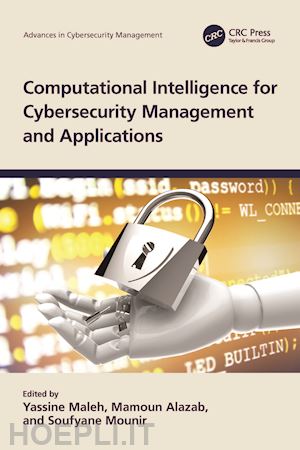Yassine Maleh (http://orcid.org/0000-0003-4704-5364) is a PhD of the University Hassan 1st in Morocco in the field of Internet of Things Security and privacy, since 2013. He is Senior Member of IEEE, Member of the International Association of Engineers IAENG and The Machine Intelligence Research Labs. Dr Maleh has made contributions in the fields of information security and privacy, Internet of Things Security, Wireless and Constrained Networks Security. His research interests include Information Security and Privacy, Internet of Things, Networks Security, Information system and IT Governance. He has published over than 50 papers (Book chapters, international journals and conferences/workshops), and 4 edited books and 1 authored book. He is the editor in chief of the International Journal of Smart Security Technologies (IJSST). He serves as an Associate Editor for IEEE Access (2019 Impact Factor 4.098), the International Journal of Digital Crime and Forensics (IJDCF) and the International Journal of Information Security and Privacy (IJISP). He was also a Guest Editor of a special issue on Recent Advances on Cyber Security and Privacy for Cloud-of-Things of the International Journal of Digital Crime and Forensics (IJDCF), Volume 10, Issue 3, July-September 2019. He has served and continues to serve on executive and technical program committees and as a reviewer of numerous international conference and journals such as Elsevier Ad Hoc Networks, IEEE Network Magazine, IEEE Sensor Journal, ICT Express, and Springer Cluster Computing. He was the Publicity chair of BCCA 2019 and the General Chair of the MLBDACP 19 symposium. Mamoun Alazab (https://orcid.org/0000-0002-1928-3704) is the Associate Professor in the College of Engineering, IT and Environment at Charles Darwin University, Australia. He received his Ph.D. degree is in Computer Science from the Federation University of Australia, School of Science, Information Technology and Engineering. He is a cyber security researcher and practitioner with industry and academic experience. Dr Alazab’s research is multidisciplinary that focuses on cyber security and digital forensics of computer systems including current and emerging issues in the cyber environment like cyber-physical systems and the internet of things, by taking into consideration the unique challenges present in these environments, with a focus on cybercrime detection and prevention. He looks into the intersection use of machine learning as an essential tool for cybersecurity, for example, for detecting attacks, analyzing malicious code or uncovering vulnerabilities in software. He has more than 100 research papers. He is the recipient of short fellowship from Japan Society for the Promotion of Science (JSPS) based on his nomination from the Australian Academy of Science. He delivered many invited and keynote speeches, 27 events in 2019 alone. He convened and chaired more than 50 conferences and workshops. He is the founding chair of the IEEE Northern Territory Subsection: (Feb 2019 – current). He is a Senior Member of the IEEE, Cybersecurity Academic Ambassador for Oman's Information Technology Authority (ITA), Member of the IEEE Computer Society's Technical Committee on Security and Privacy (TCSP) and has worked closely with government and industry on many projects, including IBM, Trend Micro, the Australian Federal Police (AFP), the Australian Communications and Media Authority (ACMA), Westpac, UNODC, and the Attorney General’s Department. Soufyane Mounir is Associate Professor in the National School of Applied Sciences of Sultan Moulay Slimane Slimane, Beni Mellal, Morocco, since 2014. He got his PhD in Electronics and Telecommunication, from University Hassan 1st, Morocco. His research is multidisciplinary that focuses on Telecommunications, VoIP, signal processing, embedded systems and cyber security. He is an active member of LaSTI Laboratory, ENSA Khouribga.











